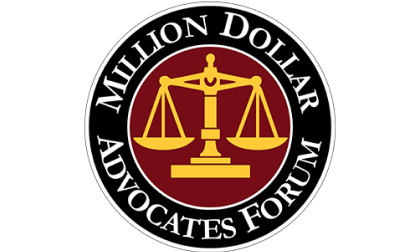When an accident results in an injury, the financial and emotional toll can be overwhelming. Medical bills, lost wages, and ongoing treatment costs can create long-term financial burdens, while pain and suffering may affect daily life. Personal injury cases allow victims to seek compensation for these losses with the assistance from a New York City, NY personal injury lawyer, helping them recover financially and physically. The Eskesen Law Firm knows that understanding the different types of compensation available can help injury victims pursue a fair settlement or court award. Our law firm can help you in our outside of court.
Economic Damages: Covering Financial Losses
Economic damages, also known as compensatory damages, are meant to reimburse injury victims for tangible financial losses. These losses are easier to calculate because they have a clear monetary value.
Medical expenses are one of the most significant forms of economic damages. This includes hospital bills, doctor visits, physical therapy, prescription medications, and any necessary medical devices such as wheelchairs or prosthetics. If an injury requires long-term treatment, future medical expenses may also be factored into the compensation.
Lost wages are another key component of economic damages. If an injury prevents a person from working temporarily, they may be entitled to recover the income they lost during their recovery. In cases where the injury leads to a permanent disability that affects earning potential, compensation for lost future income may also be awarded.
Property damage is considered an economic loss in personal injury cases involving vehicle accidents or other incidents where personal belongings are damaged. Compensation may cover the cost of repairs or replacements for damaged vehicles, bicycles, electronics, or other property affected by the accident.
Non-Economic Damages: Compensation For Emotional And Physical Hardship
Non-economic damages compensate injury victims for losses that do not have a direct financial cost but still impact their lives. These damages can be more challenging to calculate, as they vary based on the severity of the injury and its effects on the victim’s overall well-being.
Pain and suffering compensation accounts for the physical pain endured due to the injury. The more severe and long-lasting the pain, the higher the compensation may be. Chronic pain, permanent disabilities, and injuries requiring extensive medical treatment are more likely to receive significant pain and suffering damages.
Emotional distress damages cover the psychological impact of an injury. Anxiety, depression, post-traumatic stress disorder (PTSD), and sleep disturbances can all be factors in determining compensation. If an injury leads to a diminished quality of life, such as the inability to participate in hobbies or daily activities, additional compensation may be awarded.
Loss of consortium refers to the impact an injury has on a victim’s relationship with their spouse or family. If an injury prevents someone from maintaining companionship, intimacy, or household contributions, their spouse or family members may also have the right to seek damages.
Punitive Damages: Holding Negligent Parties Accountable
In certain personal injury cases, courts may award punitive damages in addition to economic and non-economic compensation. Unlike compensatory damages, which aim to reimburse victims for their losses, punitive damages serve to punish the at-fault party for reckless or malicious behavior.
Punitive damages are often awarded in cases involving extreme negligence, such as drunk driving accidents, medical malpractice due to intentional misconduct, or defective products that manufacturers failed to recall despite knowing the risks. The goal of punitive damages is to discourage similar behavior in the future and hold wrongdoers accountable.
Factors That Affect Compensation Amounts
Several factors influence the total compensation awarded in a personal injury case. The severity of the injury plays a major role—more serious injuries generally result in higher settlements due to increased medical costs and long-term effects. The degree of negligence by the at-fault party also impacts compensation, as clear liability makes it easier to secure a higher payout.
Insurance policy limits can affect how much compensation is available. If the at-fault party’s insurance coverage is limited, it may be necessary to pursue additional sources of compensation, such as an underinsured motorist policy or a lawsuit against multiple parties.
The strength of the evidence presented also plays a role in determining case value. Medical records, witness testimony, accident reports, and expert opinions all contribute to building a strong case for fair compensation. By understanding some of the common causes of accidents, you can also determine what chance your case may have in court.
Why Legal Representation Matters In Securing Maximum Compensation
Navigating a personal injury claim without legal assistance can be difficult, especially when dealing with insurance companies that try to minimize payouts. A legal professional can help injury victims calculate the full value of their case, negotiate with insurers, and ensure that all available damages are pursued.
Understanding the different types of compensation available is essential for receiving a fair settlement. Economic, non-economic, and punitive damages all play a role in helping injury victims recover financially and emotionally. Seeking legal guidance ensures that all potential compensation is accounted for, helping victims move forward with the financial support they need. The Eskesen Law Firm has 24/7 assistance, which means we can help you out at any time that you need to seek assistance from a personal injury lawyer. Do not wait to contact us.





